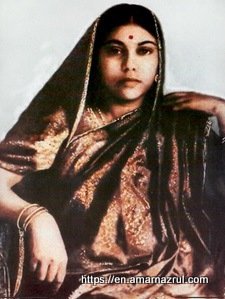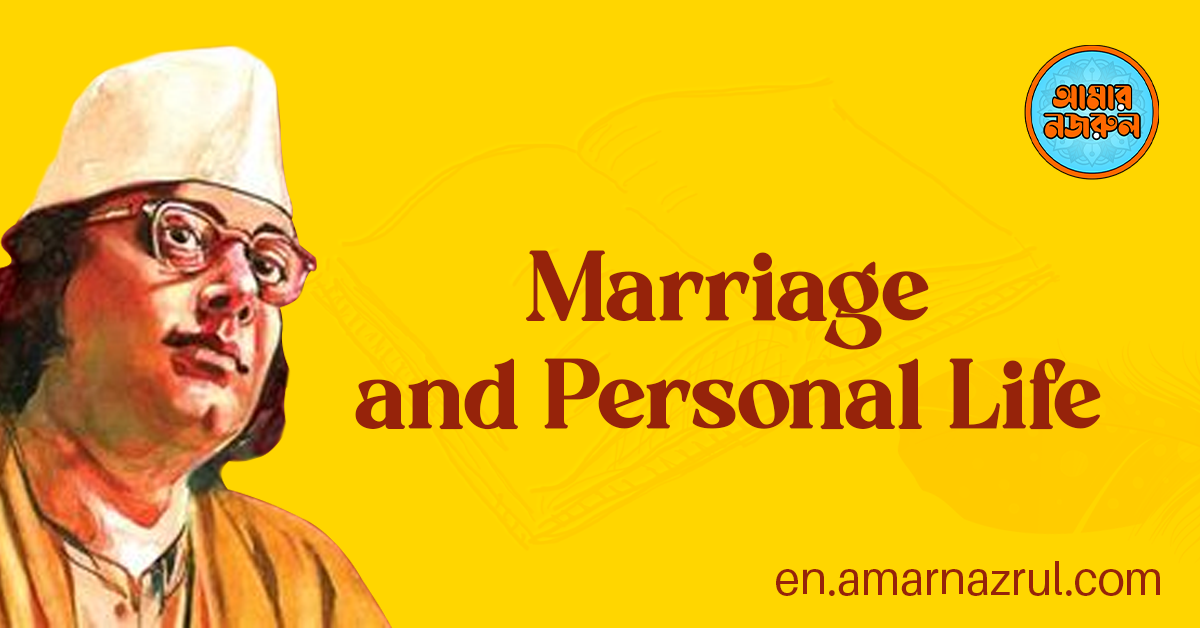Kazi Nazrul Islam, often referred to as the “Rebel Poet” of Bangladesh, was a prominent Bengali poet, writer, musician, and revolutionary. His contributions to literature, culture, and social change are widely celebrated. While he is primarily known for his poetic and revolutionary work, his personal life and marriage played a significant role in shaping his identity and creative output.
Kazi Nazrul Islam: Marriage and Personal Life

Introduction
Kazi Nazrul Islam was born on May 25, 1899, in the Churulia village of British India (now located in West Bengal, India). His life journey was marked by immense hardship, struggle, and an unquenchable thirst for justice. While his creative works encompassed various themes, from nationalism to spirituality, love, and social equality, his marriage and personal life experiences had a profound influence on his artistic expression and ideology.
Early Life and Influences
Growing up in a family with modest means, Nazrul was exposed to poverty and social inequalities from a young age. He developed a keen sense of empathy and compassion for the downtrodden, which later found resonance in his revolutionary poetry. These early experiences shaped his worldview and ignited his desire for societal change.
Nazrul’s literary journey began with poetry, and he was known for his fiery and emotionally charged verses that captured the essence of the struggles faced by the common people. His unique blend of spirituality, humanism, and social critique set him apart as a poet with a mission.
Marriage to Pramila
One of the most significant events in Nazrul’s personal life was his marriage to Pramila Devi in 1924. Pramila was an accomplished writer, poet, and musician in her own right. The marriage was unconventional for its time, as Pramila hailed from an upper-caste family while Nazrul came from a lower caste. Their union defied societal norms and challenged caste-based discrimination prevalent in Indian society.
The marriage was a reflection of Nazrul’s progressive and egalitarian beliefs. It symbolized his commitment to breaking down barriers and promoting social harmony. The couple’s deep emotional connection and shared artistic pursuits fostered an environment of creativity and intellectual exchange.
Impact on Nazrul’s Work
Nazrul’s marriage to Pramila marked a turning point in his creative output. His love for her inspired some of his most exquisite romantic poems and songs. Their relationship was characterized by mutual respect, understanding, and a shared passion for literature and music. Pramila’s influence on Nazrul’s work can be observed in his nuanced portrayal of love, longing, and the complexities of human relationships.
Additionally, the couple’s collaboration resulted in the creation of numerous musical compositions. Pramila’s musical talents complemented Nazrul’s poetic prowess, leading to the production of timeless songs that continue to resonate with audiences across generations.
Challenges and Struggles
Despite their deep bond, Nazrul and Pramila faced numerous challenges in their personal and creative lives. Financial difficulties, societal prejudices, and the political turmoil of the time tested their resilience. Nazrul’s outspoken views and revolutionary activities often led to his imprisonment, leaving Pramila to manage their family and household responsibilities.
These challenges, while daunting, further solidified their commitment to each other and their shared ideals. Their perseverance in the face of adversity remains a testament to their unwavering dedication to their art and principles.
Pramila’s Legacy
Tragically, Pramila’s health deteriorated over the years, and she was diagnosed with amnesia, leaving her unable to recognize her own husband. This painful phase of their relationship, marked by emotional turmoil, deeply affected Nazrul. Pramila’s condition brought to light the fragility of human connections and the inevitability of loss.
Despite the difficulties, Nazrul continued to care for Pramila until his own health started to decline. The poignant moments of their later years serve as a reminder of the transient nature of life and love.
Conclusion
Kazi Nazrul Islam’s marriage to Pramila was a remarkable chapter in his life that profoundly influenced his creative endeavors and ideological convictions. Their union defied societal norms, emphasizing equality, love, and unity in the face of adversity. Pramila’s influence on Nazrul’s work is evident in his compositions, reflecting their shared passion for poetry and music.
While their journey was marked by challenges and sacrifices, their story serves as an inspiration for embracing love and art as vehicles for change. Kazi Nazrul Islam’s legacy, rooted in his marriage and personal life experiences, continues to inspire generations to strive for justice, equality, and the transformative power of creativity.
